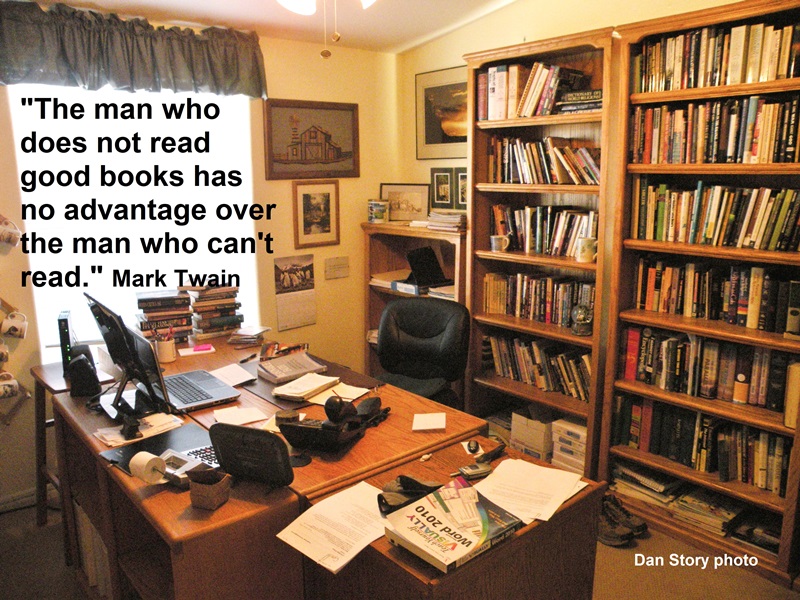Note: If you have not signed up to join my blog email list, please click on “contact” above and send me your name and email address. You will receive notices when I post a new blog and avoid missing future blog posts in this and other series. I do not share email addresses.

Part Twelve: How Can We Evangelize without Saying a Word?
American evangelist, founder of Campus Crusade for Christ, and author of dozens of books, the late Bill Bright, co-wrote two novels with Ted Dekker. Referring to them, Bright wrote:
I have come to the conclusion that a good novel on biblical themes can reach many more people than most theological works. God Himself, upon coming to earth in the form of Jesus of Nazareth, chose stories as His primary mode of communication. He used fiction. We call them parables, but they are stories either way (Blessed Child, 349).
It can be challenging to get non-Christians to read Christian books, especially theological or apologetic books that openly promote Christian values. However, during the past couple of decades, numerous Christian authors have written novels that are subtle in their presentation of the Christian worldview. Many of these novelists are every bit as skillful as popular secular authors in creating exciting, suspenseful plots built around interesting, real-life characters.
In a newsletter essay, the late Christian apologist Gretchen Passantino commented on “Discovering God through Stories” in Answers in Action.
Some of the most profound personal and spiritual insights I’ve ever experienced have grabbed me from the pages of a story. In exquisite story telling I see the creational image of God reflected in authors who created worlds of ideas never pondered before. As a spiritual novice and moral ingénue I encountered and came to understand faithfulness, integrity, courage, humility, and self-discipline through good characters; and betrayal, deceit, cowardice, pride, and self-indulgence through evil ones. I can’t count how often God has sneaked up on me in a powerful story, and taught me lessons I wouldn’t have willingly learned had he been so obvious as to challenge my stubbornness directly through a Bible study.
Encourage your non-Christian friends, family, and coworkers to read novels that portray Christianity in a positive light. Start a book club that meets every week or two to discuss a particular book. The idea is to encourage non-Christians to consider aspects of the biblical worldview and compare them with secular and religious postmodernism. Which worldview best explains the human condition? Which one best accounts for people’s natural tendency to sin, to be self-focused, to be greedy, lustful, and so on? Which worldview best accounts for the intrinsic human craving for a relationship with God?
Most importantly, which worldview—Christian or postmodern—best explains life’s great mysteries: Where did I come from? Why am I here? Why is there evil and suffering in the World? Is there life after death? How do I attain it? These topics arise in the plots of Christian novels, and all can be evangelistic or apologetic points of contact.
The goal is to help non-Christians understand that Christianity offers solutions to the issues secularism can’t solve. Christianity provides the joy, peace, moral guidelines, and intellectual gratification today’s society desperately needs. ©
Next week I’ll begin a news series that will explain how and why Christians should go on the offensive in apologetic encounters rather than just the defensive.
Can you suggest some of these books or movies for adults?
Since I don’t know your area of interest, I can suggest some of the authors my wife and I enjoy. For romance-like novels with good plots and believable characters, my wife recommends Lynn Austin, Gerri Blackstone, and Karen Kingsbury. I particularly like Robert Whitlow’s books, whose characters are usually lawyers. His most recent one, Trial and Error is a great book. It’s about a quasi-Christian who becomes stronger in his faith through an ordeal he faces. I also like Randy Singer novels, whose main characters are also lawyers. Good books for thinking Christians. In terms of movies with good redeeming stories, I recommend the five (maybe six) movies produced by “The Kendrick Brothers,” the most recent one is “Overcomer.” One of my favorite moves is “Do You Believe.” It is hard to recommend movies because there are so many good Christian movies available now, and it largely depends on one’s taste.
I hope this helps!